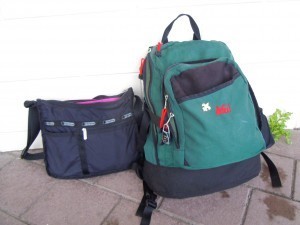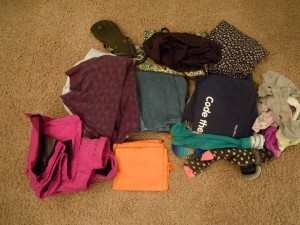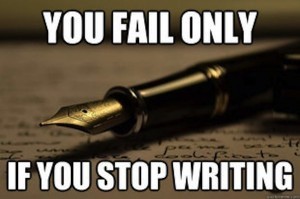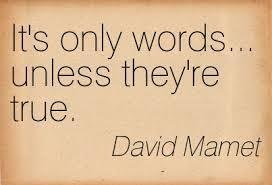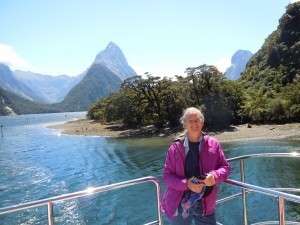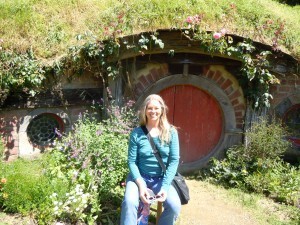Leah R. Cutter's Blog, page 20
February 18, 2014
The Popcorn Thief Now Available!
 The Popcorn Thief is now available!
The Popcorn Thief is now available!
The blurb:
Franklin loves popcorn.
He used to love his mama more. Then she died, but didn’t pass on, and now haunts him like all the other ghosts. Only popcorn brings him solace.
Every year, Franklin competes against Karl for the Kentucky State Fair blue ribbon prize for the best popping corn.
When an angry ghost leaves an ear of corn–stolen from Karl’s crop, with Franklin’s fingerprints on it–at the scene of a murder, Franklin knows his troubles just started.
I love this novel. I really enjoyed writing it.
Generally speaking, when people ask if me if I have a favorite novel, I respond that the novel I’m currently writing is my favorite. And for the most part, that’s true. I am having a blast writing the current novel.
On the other hand, I still really love Popcorn Thief. It’s quirky, weird, and fun.
Read the first two chapters of the novel as a PDF
It’s available for $5.99 as an ebook, and $14.95 as a trade paperback.
From CreateSpace, as a trade paperback
Crossposted from my website. If you'd like to comment, you can do so here or there.
February 16, 2014
Story Inspiration Sunday
Since I’m on sabbatical for the day job, I’ve been trying to learn how to write full time.
I know that I’m a bit ahead of other writers just starting out, as I have worked at home for the day job for 13+ years. So the suddenly being home all the time hasn’t been a shock. I know how to be disciplined, so I can get stuff done during the day when there’s no one around.
However, writing full time is different than doing the day job. Though I’m mostly self-directed in the day job, the tasks are discrete.
Writing full time means: Writing. Then, more writing. And then, writing some more!
Normally, I’m pretty good at coming up with solutions for the “write more” part. When I’ve stopped writing, it also tends to be obvious why I’ve stopped. I’ve either pulled up, out of the character, or I’ve gotten too much into the big picture instead of what’s happening immediately before me. I just need to write the next line.
The problem with the current novel is that it’s written in the same style as Clockwork Kingdom. Which means that it’s written as short scenes-rarely more than 1000 words long-and with alternating characters.
When I get to the end of a scene, I have to figure out which is the next voice. Which part of the story should I move forward.
And this has been where I’ve been getting stuck. When I get to a break and I need to figure out the next voice.
I have lots of tricks for refinding inspiration. This week, I fell back on one of my oldest tricks:
Take a walk.
I know, I know! I have a deadline (self-imposed, but still. Deadline.) I have words I need to write! A daily word count that I’m really trying to make!
But. Standing there in front of the computer screen with nothing coming, no words, can be not just frustrating, but intimidating, after a while. The questions start to rise out of the mire that is your imagination. Am I writing the wrong book? Have I burned out as a writer? What am I doing here? What happens if nothing ever comes and I can’t finish the novel?
Nope. None of those little voices are actually worth listening to.
I just turned off my computer and walked away, up the street, going to the post office.
By the time I got a block, I had figured out not what the next scene should be, but what needed to happen three scenes from now.
By the time I’d walked two blocks, I’d finally figured out what the next scene should be.
By the time I was walking back, I was excited again by the book, by what I was writing about.
Every book is different. The process for every book will be different. This book seems to need a lot of short, focused sessions, followed by breaks that take me away from the computer. By doing that, I’ve managed to write more than 20,000 words on the new novel this week.
So what about you? When you feel as though you’ve hit that wall, where do you turn just for that quick jolt to get you moving again?
Crossposted from my website. If you'd like to comment, you can do so here or there.
February 11, 2014
Travel Tuesday Post
Subtitled: The art of traveling light
For the New Zealand trip, I think I traveled the lightest I ever have. I was traveling in a developed country, and I wasn’t planning on camping, and those decisions helped lighten my pack–it isn’t that I’m a packing/traveling genius or something.
But I still felt smug every time I passed long lines of people either checking in their luggage, or waiting for it to be returned. The second morning of my trip I walked, without doubt or hesitation, about 45 minutes from the hostel to the train station. Just threw on my pack, slung my other bag over my shoulder, and off I went.
What was I traveling with? A small green backpack and an over the shoulder bag. I traveled for three weeks with just these.
Let’s cover the disadvantages first: I didn’t pick up many souvenirs while I was traveling–not unless I was going to ship it back to the US immediately. I didn’t have any room for much else.
Every time I had to get something out of the pack, particularly if it was in the bottom of the bag, I had to repack it. I got very efficient at this, but it wasn’t as if I could just shove things in. They had to be packed, rolled and in a particular order.
There was always the chance of things falling out of my pack. I had to be watchful and not lose anything. That didn’t mean I was successful: I lost my hand lotion as well as my brush.
If my bag ever got stolen, well, I’d be hurting. There was only so much I could carry in the over the shoulder bag. I tried to carry the important things there–the iPad, my notebook, my wallet, and my useless phone (used primarily as a date/time device. Possibly a watch would have been better.)
But the advantages far outweighed the disadvantages. It was so easy to pick up and go. I never had to worry about checking my luggage, no matter how I was traveling. It weighed less than 7 kg when I first arrived, so I never was required to check it (I weighed it at the airport when I first arrived–6.5 kg.)
I always felt light and free. That was worth whatever hassle such a small bag entailed.
What did I pack?
Three shirts, three t-shirts, four pairs of underwear, an extra pair of jeans, a light pair of pants that I used as PJs, travel towel, three pairs of socks, a pair of flip flops, a bathing suit, a sarong, a towel, an inflatable pillow, a hat, waterproof/wind proof jacket, gloves. Sundries included laundry bag and soap, eye mask, medicine, small Altoids kit with first aid stuff, shampoo, antibacterial hand gel, my knitting, a Starbucks cup that served as water bottle, a clothes line, extra clothes pins, emergency rain poncho.
The smaller bag held my iPad, my notebook, camera, all the electrical cords, electric converter plug, extra camera memory chips, extra camera battery, earphones, iPad to camera connector, sunscreen, hair things, nail clippers, phone, wallet, and I carried all my tickets and maps in there.
Because I was used to traveling in less safe areas, I also had my money belt with me at all times. It held my passport, my extra cash, and an emergency credit card.
I could have travelled lighter. I didn’t need the sarong or the bathing suit. I didn’t use anything in the Altoids tin, but I wouldn’t have traveled without it–better safe than sorry.
It sometimes felt like a lot–particularly with all the electronics that needed to be charged, and always scrambling for outlets. But I used every piece of clothing, and everything in both bags. There wasn’t much I could have traveled without.
So how did I manage?
I took a shower almost every night, so my towel would be dry in the morning. I washed the underwear I had worn for the day almost every night. There were a few times when I had to wait and wash more than one pair at a time.
I did laundry in a washing machine once, just after the first week. Washed the jeans, all the shirts, all the socks. Wore each pair of clean jeans for one solid week. Shirts were also worn on continuous days, until they became fragrant. The last week, I washed two shirts and socks again.
In the shops, there were T-shirts that said, “Same shirt. Different day.” That’s part of what you do when you’re traveling. Particularly when you’re traveling light. If it passes the smell test, it’s clean. Frequently, backpackers have really smelly aerosol deodorant. Just so they can spray their clothes and don’t have to do laundry as often.
A couple of times I did laundry in a bag. Basically, take a large, ziplock bag. Add water and a little bit of laundry soap. Close it up, shake and make sudsey. Add clothes. Shake. I find it easier to do laundry this way than in a sink. Can never count on there being a stopper, or if you bring your own, that it will work (I always carry my own, of course, as well.)
Wring out the clothes, then roll them up in the travel towel to get out all the moisture so they won’t drip. Hang over all available surfaces to dry.
So yes, in the end, traveling with so few clothes meant more work, more laundry. I always took my shower at night so I could wash things and they’d be dry by the morning.
But I still say traveling so light was worth it.
If you find these travel posts interesting, if you learned something, or you just want to support an artist, feel free to donate a dollar.

Crossposted from my website. If you'd like to comment, you can do so here or there.
February 9, 2014
Story Inspiration Sundays
I blog about inspiration both here and over at Book View Cafe. Feel free to comment either here or there.
I’ve finally finished the last (sixth) short story for my anthology workshop!
WOO AND HOO!
I’ve actually really enjoyed the process of being given a general idea about what the anthology theme is, then being told, “Go!”
Then again, I like writing prompts.
My favorite prompts are from the book A Writer’s Book of Days, by Judy Reeves. This book has a prompt for every day of a year. I found them to be good, thoughtful prompts.
I started using this book back in 2006. I had stopped writing for a while–my life had imploded and I wasn’t emotionally capable of writing. (I want to emphasize that I did NOT have writer’s block, which I define as the desire to write without any words showing up. That wasn’t my problem. I didn’t want to write. I was mostly okay with that, as I knew I was emotionally whacked.)
Eventually, I felt healed enough to write again. But I was having problems getting back into it. So I picked up this book and set myself a goal of writing every day. It sucked at the start–I hadn’t written regularly in a long while. It took a while for the pump to get “primed” as it were.
But the practice was good. Writing for myself was good–nothing I produced from any of those prompts ever had to see the light of day. Getting back into the flow of words was wonderful. I blogged a lot about this process, and thinking back about it, I remember feeling like it was finally spring, and I was blossoming after a long cold winter, finally coming alive again.
So, getting back to inspiration, do you use writing prompts? Frequently, with a writing prompt, I’ll only use half of what’s suggested. For example, the prompt might be, “Write about your father’s hands.” I might just write about hands, or just my father.
I used to have several sites that I could go to and browse through when I needed to write something and I didn’t know what I should write about.
This is one over at Live Journal, and includes both word and photo prompts (though it hasn’t been updated for quite some time…)
This site has some interesting prompts, though I find them a bit too suggestive. I just want a sentence, not a complete story line.
On this site, the prompts are all aural, which I found very interesting. They don’t work for me, but maybe they’ll work for some of you.
Of course, there’s an app for that…. Several, actually.
In fact, while writing this post, I found that many of the writing prompt sites that I used to frequent no longer exist. However, there are now a bunch of apps, when there used to be only 1-2.
So do you use writing prompts? How do you use them?
Crossposted from my website. If you'd like to comment, you can do so here or there.
February 6, 2014
Settling in, part whatever
I feel very accomplished this evening.
I’ve finally figured out how to upload files directly to iTunes/iBooks.
No, I haven’t verified that everything uploaded correctly and that the books I’ve sent there are all pretty and shit.
Just let me bask in the error-free moment a while, all right?
I finished going through the “make it not broke” draft of “When the Moon.” I’m pleased with this novel. It’s a dark, epic fantasy. Is there such a category? Hopefully there’s an audience for it. I’ve spent the last few weeks, though, 6+ hours a day, working on it. It’s been very satisfying to devote those sorts of concentrated blocks of time to a single project.
However, I also finished today, instead of tomorrow. A whole day early!!!
Does that mean I’m taking tomorrow off? Banish the thought.
Tomorrow, when I finish the final revisions on the last of the anthology stories, I’m going to start reading “Clockwork Kingdom.” And outlining and plotting.
That’s right. It’s time to start writing the sequel. Starting Monday, actually. I plan to write the next novel in 10 days. Because that’s how I roll…
Crossposted from my website. If you'd like to comment, you can do so here or there.
February 4, 2014
Tuesday Travel Posts!
As some of you may or may not know, I spent the first three weeks of the year traveling through New Zealand. It was a great trip, too short, of course, but still a good holiday.
I’ve done a lot of traveling. There’s a reason why my web site is subtitled, “Writer/Traveler.”
I’ve decided to write up my travel adventures. The trip to New Zealand will have the most posts to start with, but I will tell some of my other tales, like working on an archaeological dig in England, bartending in Thailand, teaching English in both Hungary and Taiwan, as well as other general travel things, like hiking across the glaciers in Iceland, hitchhiking through the Yucatan, etc.
My goal is to do 52 posts, one every Tuesday, for a year. After that, we’ll see how the series is going, how many traveler stories I have left, whether anyone is interested in reading more.
I will also be adding a tip jar to my travel stories. I need to be able to make a living from my writing at some point, and this is the start of that, the multiple revenue streams. If you find you’re enjoying my travel stories, feel free to leave a buck or two in the tip jar once I set it up.
Crossposted from my website. If you'd like to comment, you can do so here or there.
February 2, 2014
Story Inspiration Sunday
I blog about inspiration here as well as over at Book View Cafe. Feel free to comment either here or over there!
For the latest story that I had to write, I fell back to one of the classics of inspiration, at least, for me. That’s David Mamet’s formula:
1. Who wants what from whom?
2. What happens if he (she) doesn’t get it?
3. Why now?
I can’t go into any particulars for the story I just finished, not until after something happens with it, either it’s sold or I decide to bring it out myself.
However, I have written an entire novel following this format–Zydeco Queen and the Creole Fairy Courts.
The premise of the novel was sparked by this formula, namely, that Francine wants/needs her papa’s love & attention, but he’s grieving too hard (why now) to give it to her. And what happens as the result of that–Francine going off with the fairies to fiddle at their court.
As I wrote that novel, every time I got stuck in a scene or a chapter, I went back to that formula, figuring out what it was that Francine wanted and what the consequences were when she didn’t get it.
It was an interesting way to continue to generate tension throughout the novel, to make sure that the main character was always striving and yet, always being frustrated. It created great try/fail cycles.
I know other people who hate that formula. Using it is very, very foreign to their process, how they generate story. For me, I think it’s a useful tool. Not a Swiss Army Knife, but a specialized tool. I wouldn’t use it for every story or novel, but every once in a while, it’s handy to be able to pull it out.
How about you? Do you have some special secret sauce for generating story every now and again?
Crossposted from my website. If you'd like to comment, you can do so here or there.
January 31, 2014
Settling in
This is probably a Part I of X posts, but until the next parts come, I’m not going to bother labeling them as such.
I spent the first three weeks of this year in New Zealand. Now, I’m on sabbatical from the day job: I won’t go back until March 17th. This means my world has shifted, not just from the travel, but trying to a new balance, to figure out who I am and what I’m doing.
I can easily tell you what I’m supposed to be doing: Writing. And I have been. I finished one short story for the anthology workshop and turned that in, and have written a second. I’m also in chapter six of the “make it not broke” draft of “When the Moon Over Kualina Mountain Comes”–the newest novel.
I still feel as though I’m trying to find the new rhythm to my days, though.
This morning, I finally set an alarm and got up at 7ish. (Hey, if I can’t snooze my alarm once in a while, life isn’t worth living.) This was the first morning, though, that I got up with my alarm.
Instead of making my own breakfast, I walked up to Skillet for breakfast. Ordered my usual–their daily scramble. I take it without the toast, but with extra salad. This morning it was eggs with meatloaf, mushrooms, cheese, and arugula. OMG was it yummy.
And coffee. Lots and lots of coffee.
I wrote while I was there, tossing out one scene in chapter six, completely rewriting another. This draft is very messy, and it’s taking me longer to make it not broke than I expected. (For example, this morning I removed two characters who were never mentioned again, rewriting the scene with characters who exist throughout the rest of the novel. This is what I mean by “make it not broke.” Plus I added more words. Many more words. I’ve already added 4000+ words to this draft.)
Now I’m home, showered, taking a short break before hitting the writing again. I think I need to stick to more of a schedule, to set my alarm every day. I’d hoped I wouldn’t have to do that, but I was also aware that it might be a false dream, always sleeping until I woke up.
I feel better this morning than any other morning since I got back. I assume part of that is falling back on my usual schedule. Part of it is just that I am, finally, settling in.
Crossposted from my website. If you'd like to comment, you can do so here or there.
January 26, 2014
Story Inspiration Sunday
I blog about inspiration both here and over at Book View Cafe. Feel free to comment either here or over there!
As y’all may or may not know, I’ve been traveling in New Zealand for the last three weeks.
One of the things I love about traveling is discovering how I’ve changed once I return–what fits, what doesn’t, what’s really important and what can just slide out of my life.
In terms of story inspiration, often, I write about characters with heightened senses. Travel helps me experience this.
Radar: I’ve been on my own for three weeks in a foreign country. New Zealand is pretty easy to travel through–it’s more vacation (holiday) than travel.
However, I haven’t been anywhere familiar for quite some time. I never stayed more than two nights in any location–most of the time I was just at a place for a single night.
What I’ve discovered since returning is that my radar–my awareness of what’s going on around me–has expanded greatly. I live in a city, in a neighborhood where people get mugged sometimes. I’ve always had a level of awareness of what’s going on around me.
Right now, my radar is cranked up. My circle of awareness has increased by at least half a block or so. I’m aware of everything and everyone in my sphere, and that includes up in the trees, all the birds.
Bag lady: For the last three weeks, I’ve carried all my possessions in these two bags:
(And yes, I’ll do a post later about traveling light.)
The green backpack primarily held my clothes. It didn’t contain any valuables. I stayed in youth hostels the entire time, which meant I was sleeping in a shared room dormitory. Anyone at anytime could have broken into that bag, or walked off with it. So I didn’t keep anything of serious value in it.
Instead, I kept my valuables in my black bag, which included my wallet, camera, phone, and iPad. (I also wore a money belt that contained my extra cash, credit cards, and passport.) The black bag never left my side. I slept with it on the bed next to me every night.
I noticed this morning (the first day back) that I was having difficulty leaving anything out on the counter. I’d take something out of my bag then put it right back. I live by myself in my marvelous house, but it took a few hours before I could break the habit of putting everything into a bag and keeping it hidden away.
So what does this have to do with story inspiration? It doesn’t take much to expand these sorts of characteristics, to exaggerate them, and generate either a character tag or a huge bit of backstory for a character.
Neither of these things would make a character. They’re just pieces. But put together, they could be a great influence.
There are other things from my travels that will make it into my stories. I just thought I’d start with these two.
What about you? What do you notice when you return from a trip? What sort of things will inspire you first?
Crossposted from my website. If you'd like to comment, you can do so here or there.
January 23, 2014
Fox and Hound as Featured Podcast!
I’m back! I had a lovely three week holiday in New Zealand. I’ll post more about that later, including a new series of Tuesday Travel posts.
There is also NEWS.
The latest issue of the Fiction River anthology series, Hex in the City, includes the short story “Fox and Hound” by me.
For the next week, my story is the featured podcast on the WMG Publishing web site.
My story is set in modern day Beijing, following the adventures of Gou, a peddle cab owner. A bit about this story:
“I wrote, and threw out, three other beginnings to this story. The process felt as though I was circling in, getting closer and closer, until I finally had Gou in the train station with his fare beside him. That theme continues throughout the story as well, circling and circling, as Gou tries to corner his prey.”
Crossposted from my website. If you'd like to comment, you can do so here or there.


